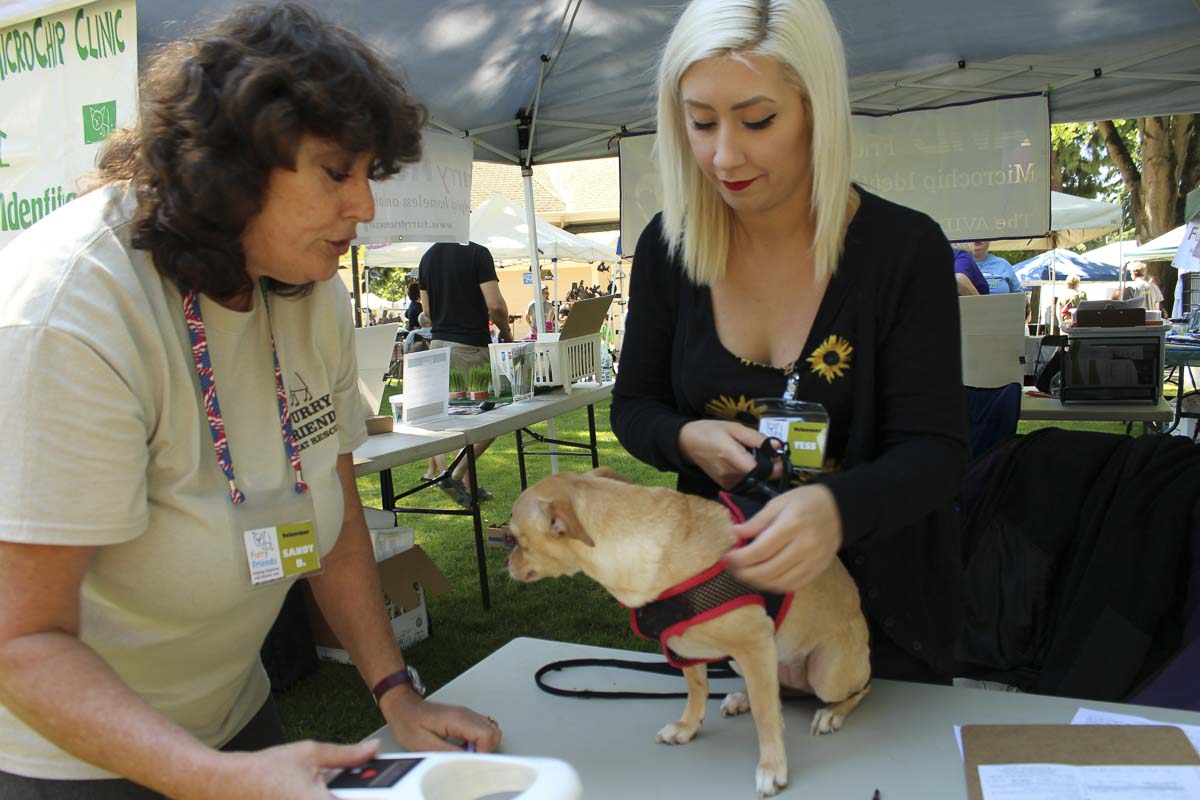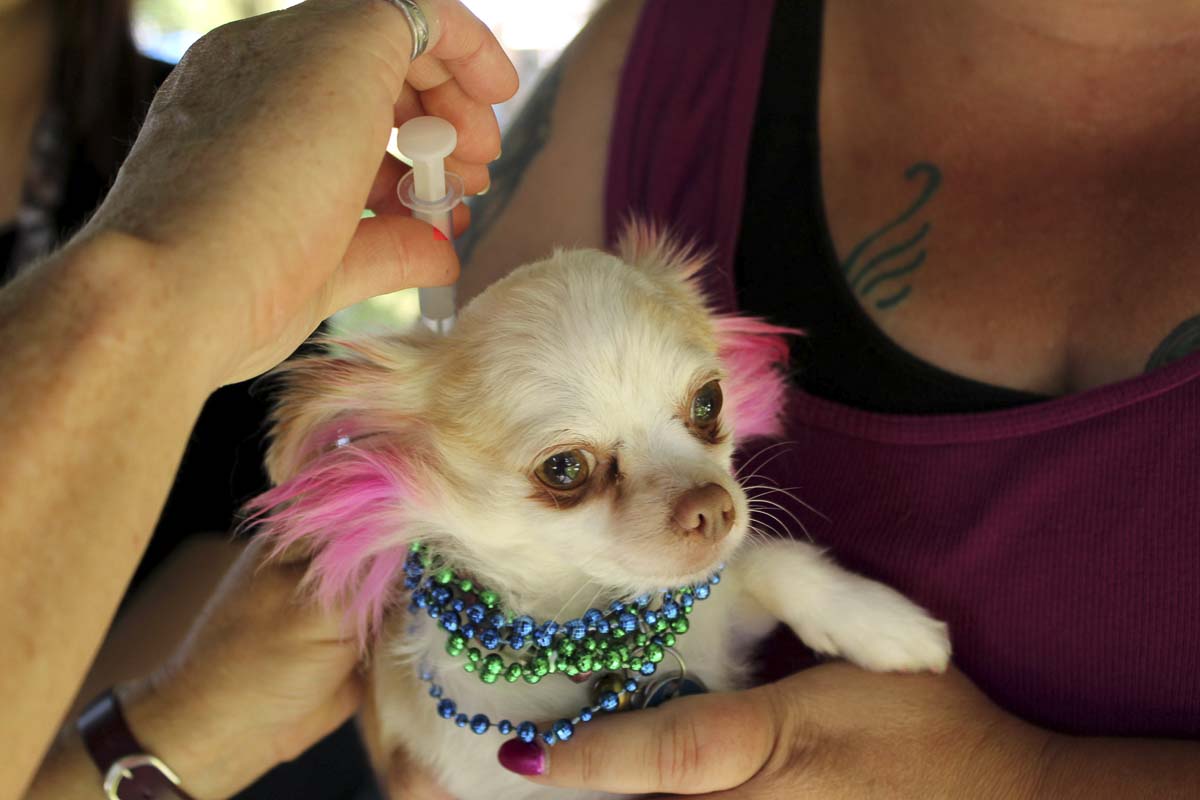Lately, an increasing number of cat and dog owners have begun to rely on a dual form of protection for their family companions
Nomi Berger
For ClarkCountyToday.com
Editor’s note: Furry Friends offers low cost micro-chipping at their Esther Short Park events in Vancouver. Visit their booth at the Recycled Arts Festival in June and the Peace and Justice Fair in September. The cost for micro-chipping your cat or dog through Furry Friends is only $20 (a $60 value).
Millions of pets go missing each year. Unfortunately, very few of them are ever reunited with their owners. Many of them become and remain strays. Others are taken to pounds or shelters, where they are all too often, euthanized. The luckier ones are saved by rescue organizations and ultimately placed in adoptive homes.

But it doesn’t have to be this way. Lately, an increasing number of conscientious cat and dog owners have begun to rely on a dual form of protection for their precious family companions. Included in this “protective package” are two forms of identification – ID tags and microchips.
Pet ID tags are small metallic or plastic tags personalized with your name, address and phone number that are attached to your cat or dog’s collar. These tags are as close as your nearest pet supply store or online vendor, and if your cat or dog ever goes missing, will immediately identify you as the owner.
Micro-chipping is a simple and safe procedure. A veterinarian or vet tech injects a microchip designed especially for animals — the size of a grain of rice — beneath the surface of your pet’s skin between the shoulder blades. Similar to a routine shot, it takes only a few seconds and most animals don’t seem to even feel the implantation. Unlike ID tags, a microchip is permanent and, with no internal energy source, will last the life of your pet. Your pet must then be promptly registered with the microchip company (some charge a one-time fee, others do not), thus storing his/her unique, alpha-numeric code in the company’s database.
Whenever a lost animal appears at a shelter, humane society or veterinary clinic, he/she will automatically be scanned for a microchip. If there is one, the screen of the handheld scanner will display that cat or dog’s specific code. A simple call to the recovery database using a toll free 800 number enables the code to be traced back to the pet’s owner. But in order for the system to work efficiently, all owners MUST keep their contact information up-to-date.

The most complete microchips comply with International Standards Organization (ISO) Standards. These standards define the structure of the microchip’s information content and determine the protocol for scanner-microchip communication. They also include the assignment of a 15-digit numeric identification code to each microchip; 3 digits either for the code of the country in which the pet was implanted or for the manufacturer’s code; one digit for the pet’s category (optional), and the remaining 8 or 9 digits for that pet’s unique ID number.
As with anything else, however, problems can and do arise. Not all shelters, humane societies, and veterinary offices have scanners. Although rare, microchips can fail, and even universal scanners may not be able to detect every microchip. Accurate detection can also be hampered if pets struggle too much while being scanned or if long, matted hair, heavy coats or excess fat deposits cover the implantation site. And because there are an ever-increasing number of pet recovery services, there is, as yet, no single database that links one to the other.
Since no method of identification is perfect, the best way owners can protect their cats and dogs is by keeping current ID tags on them, micro-chipping them, and never allowing them to roam free.
Nomi Berger is the bestselling author of seven novels, one work of non-fiction, two volumes of poetry, and hundreds of articles. She is a volunteer writer for Furry Friends in Vancouver and also volunteers her writing skills to animal rescue groups in Canada and the USA. She lives with her adopted Maltese named Mini.
Recycled cats are priceless
Furry Friends will offer their recycled cats for adoption June 29–30, 2019 at the Recycled Arts Festival (RAF) held at Esther Short Park, 301 West 8th Street in Vancouver. It has grown into a large family event, with more and more participants every year.
Area residents are invited to come on out and “purruse” the adoptable cats, talk with the Furry Friends volunteers relax and listen to music, get all sorts of info on what you can do to help the kitties besides adopting a cat and check out some of the great cat themed merchandise that Furry Friends will have for purchase.
Discounted Avid FriendChip ID microchipping for dogs and cats will be offered on Sat., June 29 from 9 a.m. to noon and Sun. , June 30 from 9 a.m. to moon. The chips will be implanted in your pet by our volunteer licensed vet tech for only $20 (a $60 value). This unique permanent identification gives your lost pet a much better chance of coming home.
Cats often do not wear collars, and may not have any other form of ID. A recent study showed that less than 2 percent of cats without microchips were returned home. However, if a cat is microchipped, the return-to-owner rate is 20 times higher than if the cat was not microchipped. This unique permanent identification gives your lost pet a much better chance of coming home.
Furry Friends volunteers will be available Saturday from 9 a.m.-5 p.m. and Sunday from 10 a.m.-4 p.m. The cats will be there during those hours. Attendees can meet the cats and volunteers or to learn more about the care of cats and the mission of Furry Friends.
Furry Friends is a nonprofit, all volunteer, no kill, cat adoption organization in Vancouver. Its mission is to help homeless, relinquished and abused cats by providing spaying and neutering, medical care and foster shelter for as long as it takes to find their forever home.For more information about Furry Friends, visit www.furryfriendswa.org, email information@furryfriendswaorg or leave a message at (360) 993-1097.




